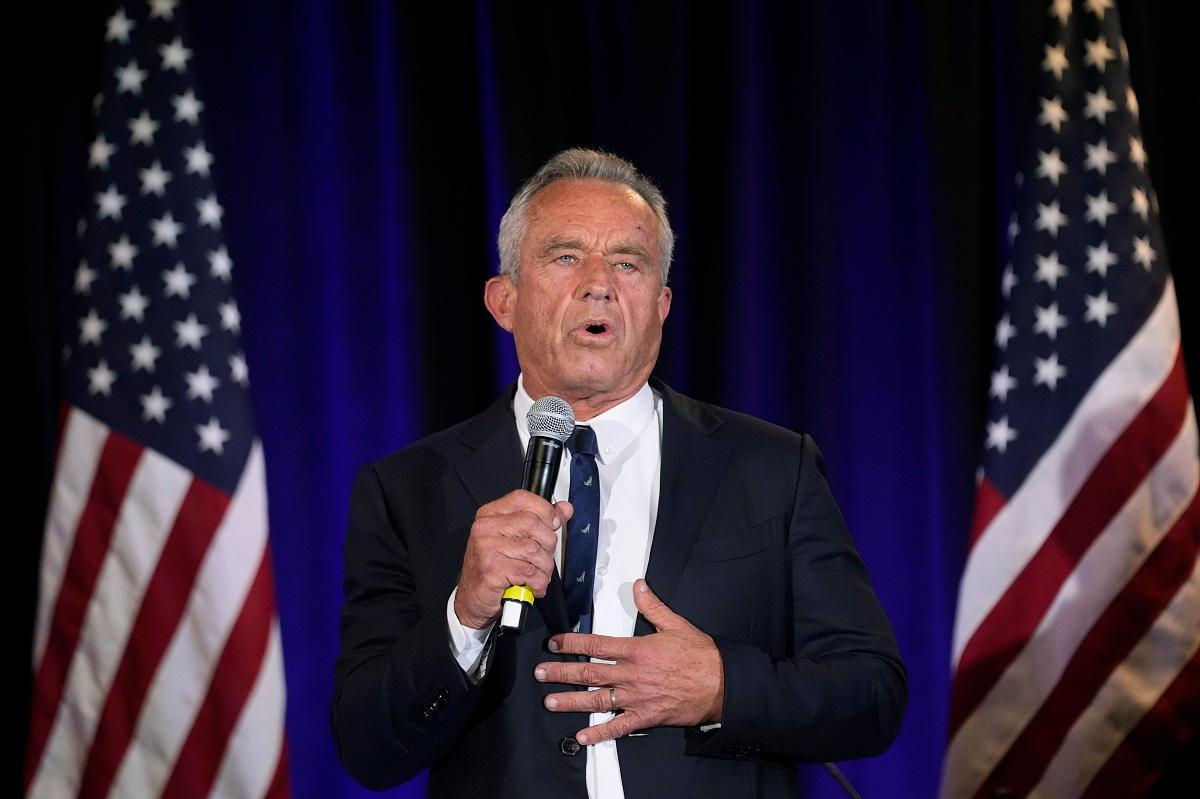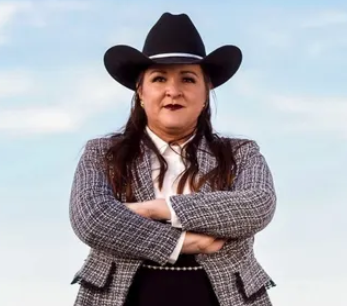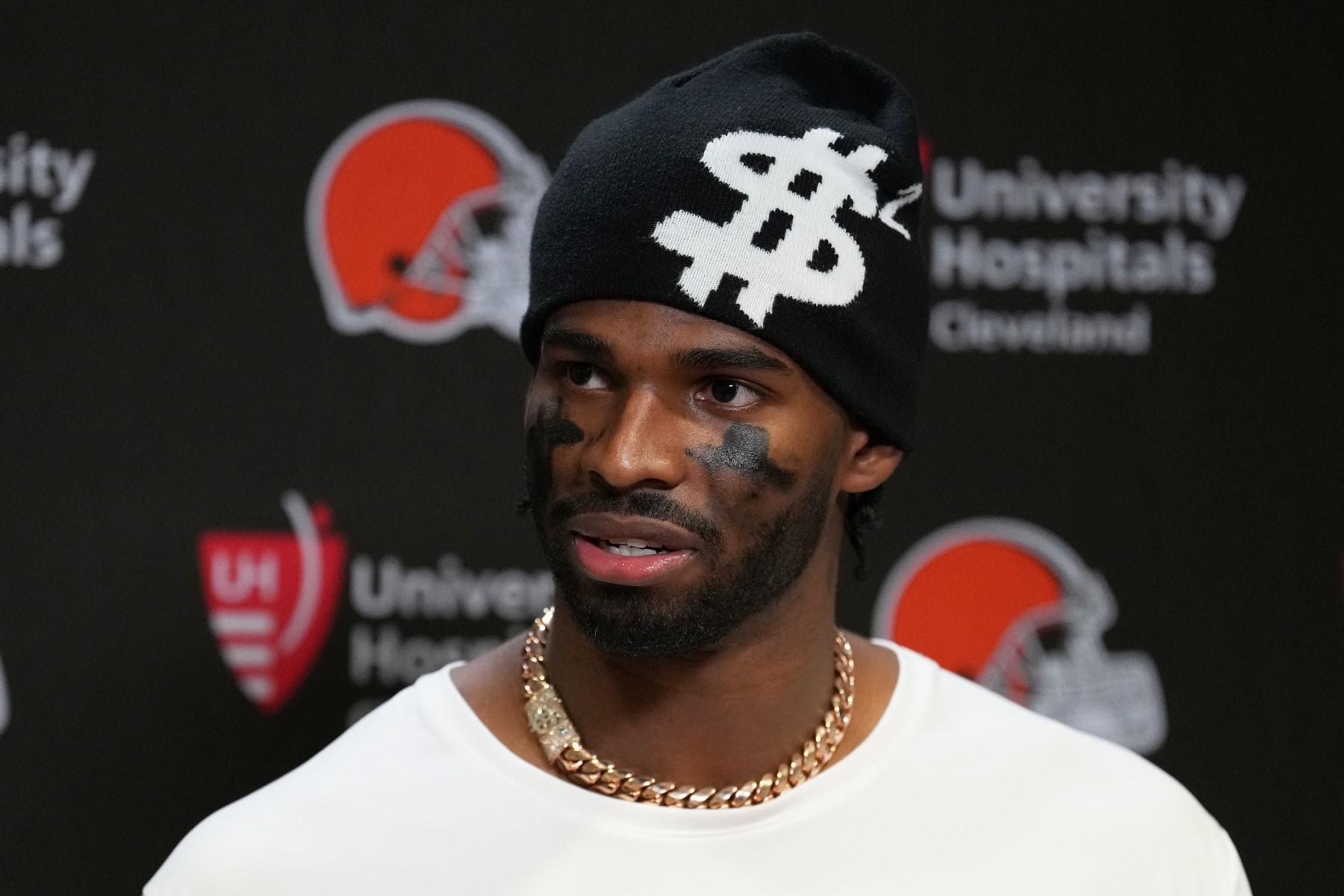
Last week, the Libertarian Party of Colorado made a surprising announcement: Robert F. Kennedy Jr. would be its nominee for president in this state.
Party leaders described it as a mutually beneficial alliance. Kennedy is an independent candidate, and this would ensure that he gets on the ballot in Colorado. Meanwhile, the Libertarians said they shared some values with Kennedy — and boosting his candidacy could do some damage to the two-party duopoly of the Democrats and Republicans.
But there is one potential issue.
The National Libertarian Party has already selected a nominee, and it’s not RFK. A man named Chase Oliver was nominated at the party’s convention in May, and he is set to appear as the Libertarian candidate on ballots across the U.S. — but not, apparently, in Colorado.
Party member Caryn Ann Harlos of Castle Rock — who describes herself as the “honey badger” of Libertarian politics — was not happy about this.
“To say that I went completely bat [expletive] would probably be an understatement,” said Harlos. She believed that the state party was going rogue — and that its decision to choose a new candidate would break the agreements and bylaws that govern the party.
“Libertarians don't believe in government, as you know. But what we do believe in is voluntary contracts. In a world where you can't even have that — it’s Thunderdome,” she said, stressing that she was speaking as an individual and not on behalf of the party.
So, Harlos, who’s also an official with the national party, took action.
Earlier this week, she printed out candidacy paperwork from the state government. She filled in the names of Chase Oliver and his running mate, Mike ter Maat. She got it notarized at a bank and had it delivered to the secretary of state’s office.
That paperwork officially declared that the nominee in Colorado would be Oliver — not Kennedy. Meanwhile, the Oliver campaign filed its own paperwork accepting the nomination. All this follows the standard protocol, Harlos argues — she also filed the 2020 paperwork to get that year’s Libertarian nominee on Colorado’s ballots.
It appears the national party may have beaten the state party to the punch. As of Wednesday morning, the state party had not yet filed any of its own paperwork to nominate RFK instead.
This fight is far from over
The state party has strongly pushed back on Harlos’ claims. State party officials say their bylaws don’t require them to follow the national party’s direction. They say the choice of a presidential nominee in Colorado is instead solely left to the state board.
“There are legitimate questions and concerns whether Mrs. Harlos overstepped her authority, not only with her communications to the Colorado SOS but as her role as LNC Secretary,” state party spokesman Jordan Marinovich wrote in an email.
The state party will soon submit its own paperwork, he said.
Harlos’ filing isn’t complete yet. The national party still must submit the names of 10 presidential electors to complete its nomination by Sept. 6, according to the secretary of state’s office. During that time, the state Libertarian party could also finish its own nomination paperwork.
It may come down to a race between the rival factions — or a legal battle.
“A single party may not place multiple candidates for president and vice president onto the Colorado ballot. The Department will accept complete paperwork from a branch of the Libertarian Party when it is submitted. Colorado law is silent on intra-party conflicts regarding candidate nominations,” wrote Jack Todd, a spokesman for the secretary of state.
The very public schism is also stirring scandal at the party’s national level. National chairwoman Angela McCardle rebuked Harlos for submitting the paperwork, according to an email released by the state party.
“You will not usurp my authority as chair,” McCardle wrote to Harlos, according to the document. “You have taken unilateral actions this week that have put us at risk of legal action. To be clear, you acted outside the scope of your authority when you sent that form to the SOS, knowing that [the state party] had entered into a written agreement with Kennedy … We are not getting pulled into a lawsuit on your behalf.”
The national party didn’t immediately respond to a request for comment.
However, one person may come out on top either way: Kennedy.
His campaign has already spent weeks gathering signatures from thousands of voters. If he submits enough valid signatures, then he can appear on the ballot as an independent, regardless of what happens with the Libertarians. A volunteer with the campaign, Giselle Massi, said the campaign was also submitting more than 20,000 signatures, compared to the requirement of 12,000. That must be done this week.
It reflects larger divides within the minor party
Even before the state party turned to RFK Jr., Colorado chairwoman Hannah Goodman had turned against national nominee Oliver.
“He really doesn’t even necessarily represent Libertarians across the nation,” she said on the Free State Colorado podcast, pointing to Oliver’s positions on the COVID-19 response and transgender youth.

Oliver has affirmed his support of non-surgical gender-affirming care for minors, and LGBTQ rights more broadly. A growing faction within the party has taken culturally conservative views on issues like gender.
The state party pointed to Kennedy as a good alternative. Despite the fact he was a Democrat until recently, the state party argued that Kennedy’s focus on “ending corporate welfare, reducing government spending, and protecting the environment” matched its own priorities. And he could bring new money and relevancy to the party, his Libertarian supporters argue.
But others like Harlos disagree, saying Kennedy is a liberal, including because he said he would sign an assault weapons ban if it passed in a bipartisan fashion. Kennedy was up for the Libertarian nomination at the national convention but received only 19 votes from the more than 900 delegates.
This kind of thing has happened before. In Arizona in 2000, the Colorado-born sci-fi author L. Neil Smith appeared on ballots instead of the national Libertarian nominee
The Libertarian Party is a distant third behind Democrats and Republicans in terms of membership in Colorado.
In 2020, the Libertarian candidate took about 52,000 votes, or 1.6 percent of the vote, in the state. But it’s possible that minor candidates will do unusually well this year. A recent edition of the Rocky Mountaineer poll found Kennedy with the support of 12 percent of respondents, though the pollster noted that surveys often overstate third-party support.
Editor's note: This article was updated July 11, 2024 to remove a word that was erroneously added to a quote. The corrected quote makes clear that it is the state party, and not the national one, that has a written agreement with Kennedy.









